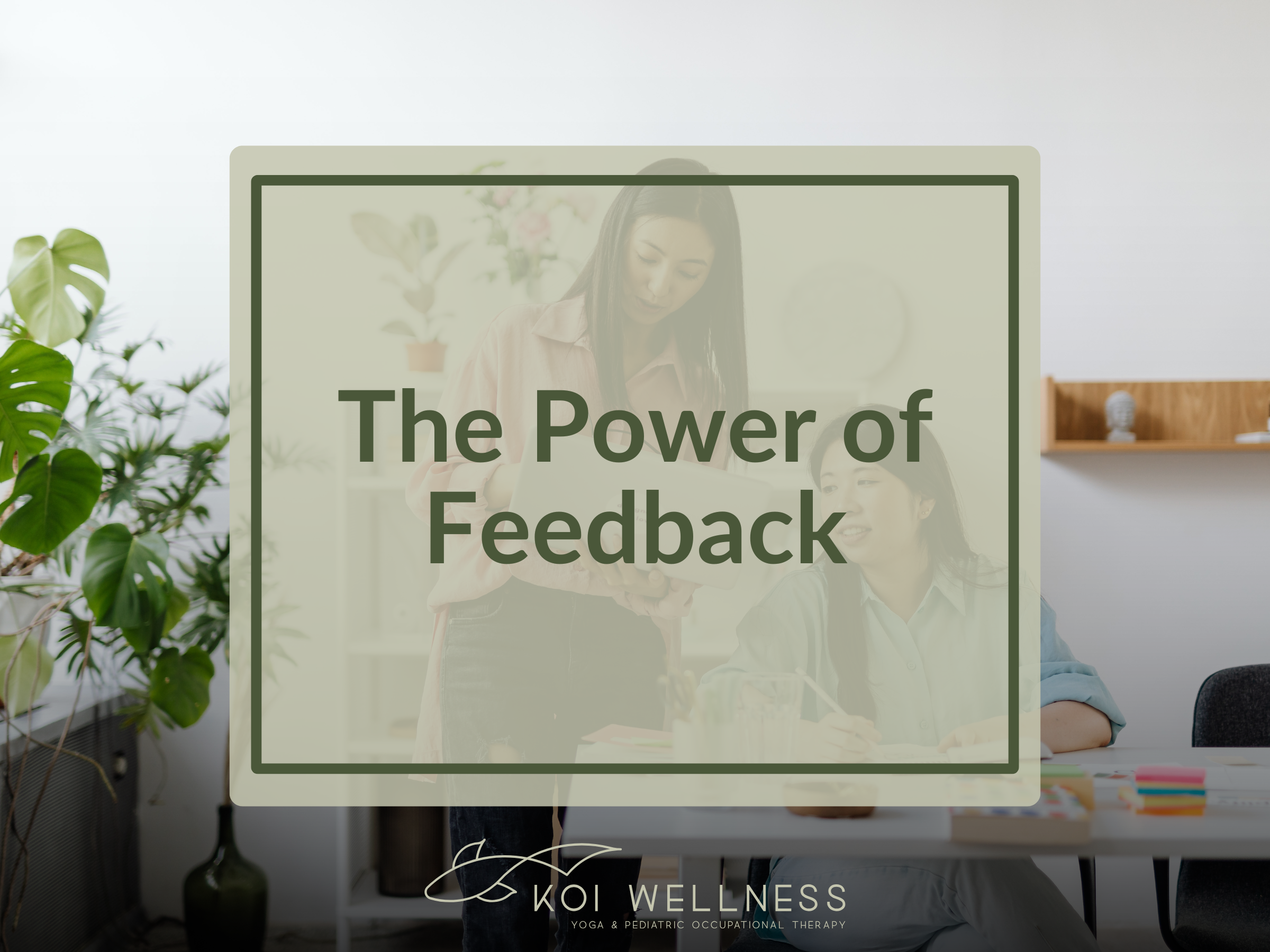One of the most meaningful reminders of why I do this work arrived in my inbox recently. It was a full circle moment, from being told I would never succeed, to empowering others to do just that. It was a message from a former high school student I worked with, letting me know they had just graduated and were heading to college. Their story stayed with me, because it reflects two core truths in occupational therapy: progress is rarely linear, and feedback—when approached with curiosity instead of fear—can be deeply transformative.
Read MoreThe start of a new year often pushes us to reset, but meaningful change doesn’t always come from starting over. Sometimes, it begins with noticing what already works.
While traveling in Germany last fall, I discovered a small but powerful detail: shared beds were set up with two individual comforters—one for each person. No tug-of-war over blankets. No negotiating temperature. Just shared space with individualized comfort. It felt surprising at first, then obvious.
That moment captured the essence of occupational therapy for me. Adaptation doesn’t have to be big or complicated. Often, it’s a thoughtful adjustment to everyday routines that makes life easier.
As we step into 2026, my hope is simple: carry forward what already supports you. Sometimes, meaningful change really is as simple as getting your own blanket.
Read MoreAs we approach the end of the year, I find myself reflecting—on the families I’ve supported, the lessons learned, and the moments that reminded me why I love this work. The final months of the year often bring both gratitude and fatigue, as we try to balance family, school, and personal well-being.
Read MoreWhen a child is navigating challenges at home, in school, or in therapy, it’s common for everyone to pull in the same direction—but sometimes it doesn’t feel that way. You might hear phrases like “We need an ABA plan” or “Let’s get OT involved,” and wonder: What’s the difference? Who does what? Can they overlap? And most importantly: What does my child need right now?
Read MoreFor many of us—parents, teachers, therapists alike—it can feel like we have to pick a side. But true progress happens when we’re on the same team, working toward the same goal: supporting the child in front of us.
Read MoreDiscover how simple movement-based exercises like Brain Gym® can help your child improve focus, self-regulation, and learning readiness—especially in cross-cultural, multilingual, or neurodivergent families. Developed by Dr. Paul and Gail Dennison, Brain Gym supports the mind-body connection with playful, purposeful activities you can start at home.
Read MoreStruggling with your child’s handwriting? Discover what common handwriting issues can reveal about your child’s motor and sensory needs—plus real tips from a third-culture pediatric OT to support neurodivergent and multilingual kids at home.
Read MoreAfter a sudden injury disrupted her travels, pediatric OT Aya Porté shares how she adapted her routine—and what it taught her about supporting families in transition.
Read MoreWondering if a weighted blanket can help your child sleep better or feel calmer? In this guide, pediatric OT and third-culture kid Aya Porté shares what families need to know—from safety and sizing to real talk on care, effectiveness, and choosing the right blanket for your child’s body—not just the bed.
Read MoreAs an OT, my goal is to empower students with the skills and confidence they need to engage fully in their daily routines—whether that’s writing in class, navigating transitions, or expressing big emotions safely. But beyond the child, I also believe in equipping families and educators with the tools and context they need to advocate and support with clarity.
In multicultural, multilingual, and neurodiverse communities, support needs to be adaptable and relationship-based. There is no one-size-fits-all. That’s why my work is rooted in collaboration, not just clinical goals.
Read MoreThese one-hour virtual sessions are designed to give you clarity, compassion, and concrete strategies—without committing to long-term therapy or wading through red tape. Whether you're unsure if OT is the right path or already navigating school stress, these sessions offer a space to be heard, supported, and equipped.
Read MoreOne of the most valuable life skills we can teach our kids doesn’t come from a textbook or test—it’s the ability to speak up for themselves.
Self-advocacy is a cornerstone of independence, confidence, and emotional regulation. I’ve covered this topic at home, but it’s just as important at school. In school, self-advocacy can be the difference between a child silently struggling and a child who gets the support they need to thrive.
Read MoreAs adults, we might take a few deep breaths before a big meeting, when we’re feeling overwhelmed, or to pause before reacting. But for kids, especially those with sensory sensitivities, big feelings, or difficulty focusing, learning how to use their breath can be a game-changer.
Read MoreOur homes play a huge role in how children regulate their emotions and behaviors. For sensory-sensitive kids—whether they’re over-responsive, under-responsive, or sensory-seeking—small environmental shifts can lead to big changes in how safe, calm, and connected they feel.
Read MoreMany children struggle to express their needs, especially when they’re overwhelmed, unsure, or navigating multiple cultural or sensory environments. But self-advocacy isn’t something kids are just born with, it’s a skill we can teach and develop at home.
🗣️ Self-advocacy means helping your child recognize and communicate what they need, whether it’s a break, support, or space. When we teach this skill early, kids build confidence, self-regulation, and resilience.
Read MoreMany children are expected to sit for extended periods, whether in traditional classrooms or virtual learning spaces. But research (and experience) shows that gross motor development—the ability to control large body movements—is closely tied to attention, memory, emotional regulation, and academic success.
Read MoreHandwriting is more than just forming letters on paper. It plays a crucial role in cognitive development, motor coordination, and self-expression. And for many children, especially those navigating multiple languages and cultures, mastering handwriting can be a bridge to stronger communication, confidence, and academic success.
Read MoreThis year has been filled with meaningful conversations, practical strategies, and personal reflections aimed at empowering you and your family. Let's take a moment to revisit some of the standout topics we've explored and the valuable resources available to support your child as they continue to grow in the next school year and beyond!
Read MoreA child may be labeled as spoiled when they frequently act entitled, struggle with boundaries, or have difficulty handling disappointment. This behavior often stems from being overindulged—whether through material items, attention, or inconsistent discipline—and not being held accountable for their actions.
Read MoreIs this sensory or behavior?”
It’s a question that comes up often, sometimes out of genuine curiosity and other times from a need to categorize and solve a problem:
“We see all these behaviors in our child and wonder if they’re sensory-related.”
“We need to figure out whether it’s either sensory or behavior.”




















